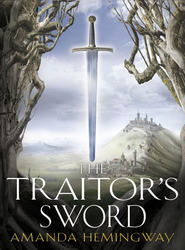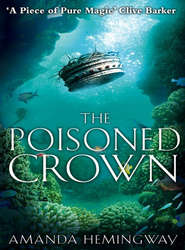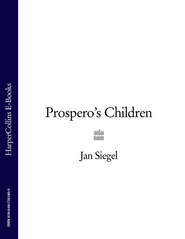По всем вопросам обращайтесь на: info@litportal.ru
(©) 2003-2024.
✖
The Greenstone Grail: The Sangreal Trilogy One
Автор
Год написания книги
2018
Настройки чтения
Размер шрифта
Высота строк
Поля
‘It’s not very twinkly,’ Hazel explained.
Nathan climbed down, switched on the lantern, and consulted his star map. ‘There’s nothing here,’ he said. ‘There shouldn’t be a star there at all.’
‘It must be a UFO,’ George declared. ‘They can look like stars. Let me see.’ Now the others had come down, he scrambled onto the box. ‘It’ll whoosh across the sky in a minute and disappear.’
But it didn’t.
‘It could be a whole new star,’ Hazel suggested. ‘I’ve heard how they can have huge explosions out in space, and that makes new stars.’
‘A supernova,’ Nathan said knowledgeably. ‘If it is, it’ll be on Patrick Moore.’
But there was nothing about a new star on any programme, and when Nathan looked the following evening it had gone. He didn’t say much to the other two, but on his own he wondered, and would steal up the stepladder late at night to look, just in case. But it was not until the next spring, when he had almost forgotten about it, that he saw the star again.
That winter a new couple moved down from London, causing a minor flutter of interest among less glamorous residents. They were in their thirties: he was a lecturer in history at East Sussex University and a writer of up-market period novels, popular enough to be stocked in most bookshops instead of having to be specially ordered, and she was an actress of the intellectual type who had appeared regularly on stage and television. His name was Michael Addison, hers Rianna Sardou (Rianna reputedly shortened from Marianne), but they were assumed to be married, though she seemed to be away a great deal, on tour with a play or on location shoots for a TV drama or bit-part film role. However, Michael was around most of the time, and the villagers pronounced him pleasant and friendly, and began to call him Mike. He would have a pint in the pub of an evening, and chat to Lily Bagot in the deli, and to Annie in the bookshop. He was rather good-looking, in a tousled, don’t-give-a-damn sort of way, with a one-sided smile which might have been irresistible if he had been inclined so to employ it. He wore country clothes – Barbour jackets, wellies, trainers – and glasses for reading and driving. His wife on the other hand, when actually seen, was something of a disappointment. The rumpled, unmade-up look which suited Michael so well was not what the village expected of an actress, particularly not one with a name like Rianna, and local opinion found her aloof and unapproachable. She had the appropriate cheekbones, but they displayed more angularity than beauty, and her hair, though long and dark, was usually scraped back into a tight coil, with loose ends spraying over the crown of her head. Gossip said she neglected Michael, and local attitudes became tinged with an unexpressed sympathy when he was around.
They had bought an oast house on the edge of the village, with two round towers under pixy-hat roofs, and a long building in between, wood-panelled, antique-furnished, expensively renovated. The River Glyde flowed past it on its meandering way through the water-meadows, and their garden ran down to the bank, with mooring for a couple of boats, though they only appeared to have a dinghy, left behind by a previous owner. The house had been empty for a while before they moved in, and Nathan, George and Hazel had once ‘borrowed’ the dinghy, almost coming to grief in the grip of a current too strong for their oarsmanship. They had had to ram the boat into the bank in order to avoid being swept away – or sinking, since the planking proved far from watertight. Nathan, seeing Michael in the shop one day, felt obliged to mention these hazards, though he would have preferred it if his mother hadn’t been within earshot. ‘You – took – that – boat – out – without – permission?’ Annie had paled from a mixture of anger and terror.
‘It wasn’t stealing!’ Nathan protested. ‘We put it back afterwards – and anyway, it didn’t seem to belong to anybody then.’
‘Boats are dangerous,’ Annie said, dismissing the issue of theft unconsidered. ‘You could’ve drowned. What were you thinking of?’
‘We can all swim. We wouldn’t drown, honestly.’
‘There are weeds under the water which can drag you down …’
‘Never mind,’ Michael intervened. ‘Thanks for warning me, Nathan. That was very thoughtful of you. Actually, I was thinking of getting a boat of my own, just a small one, an inflatable maybe, with an outboard motor. You could come for a ride with me, if your mother doesn’t object.’
‘Of course I don’t, if he’s supervised,’ Annie said hastily. ‘It’s very kind of you, but – I mean, you don’t have to –’
‘I’d like to,’ Michael assured her, turning up the twist of his smile.
‘Could I bring my friends?’ Nathan asked.
‘Nathan –!’
‘It’s okay,’ Michael said. ‘Friends are fine – if the boat’s big enough, and there aren’t too many of them.’
‘Just Hazel and George. When will you get the boat?’
‘Oh – in the spring, I expect. Too chilly on the river now. Don’t worry, Nat: I won’t forget about taking you out, I promise. I’m not a forgetting kind of person.’
‘I wasn’t worried,’ Nathan said. ‘No one calls me Nat, it sounds a bit American.’
‘I won’t if you dislike it.’
Nathan thought about it. ‘I don’t mind,’ he decided, ‘if it’s just you. And if Mum doesn’t mind?’
‘It’s your name,’ Annie smiled.
He told the others about this, in the Den the following weekend. George was both excited and rather scared at the prospect of going out in a boat again, but Hazel looked thoughtful. ‘What’s the matter?’ Nathan asked her.
‘D’you think he likes your mum?’ Hazel said, pulling her hair over her eyes as if to hide from his response.
‘Why shouldn’t he?’
‘You know what I mean.’ She still wouldn’t meet his gaze.
‘He’s married …’
‘Don’t be silly. Married people often like other people; they get divorced; they marry someone else.’ She added, rather gruffly: ‘I sometimes wish Mum would divorce Dad. He doesn’t love her very much. Great-grandma Effie says he’s no good and never was.’
There was a short silence. Mention of Effie Carlow, Hazel’s great-grandmother, always commanded respect, since few people had great-grandmothers, and age had given her opinions the aura of wisdom, whether they deserved it or not. What that age was no one was certain: her piled-up grey hair was still abundant, her walk vigorous, her face wrinkled but not withered. She had a sharp nose and a sharper tongue, and her eyes, under heavy lids, were as keen as a hawk’s.
‘Even so,’ Nathan said at last, ‘I don’t think you should put your dad down.’
‘Only to you.’ She wouldn’t have chosen to confide in George, but Nathan had made him part of their group, and she treated him a little like a favoured pet. George being there counted no more than Hoover. Probably less.
‘Anyway,’ Nathan reverted to the original subject, ‘Mum wouldn’t … she wouldn’t want someone else’s husband.’
‘My mum says Michael’s very attractive,’ Hazel stated. ‘And Annie’s pretty. She ought to have boyfriends.’
Nathan didn’t answer. This was a point which had troubled him occasionally. He had friends with single mums, both at the village school and at Ffylde – even some with single dads – and boyfriends and girlfriends were always a problem. Children had to sort them out, encourage the good ones, fend off undesirables. They tended to buy lavish Christmas presents, woo the children with hamburgers and then shoo them from the room so they could indulge in kissing and fondling while their audience giggled outside. Some new partners brought unwanted brothers and sisters in their train. It was a hazard of modern life. Nathan knew he was lucky not to have these problems, but … but … ‘Do you want a father?’ Annie asked him once.
‘I have a father,’ Nathan responded. ‘He’s dead, but he’s still my father. I don’t need another one. Only … well … if you have a boyfriend that’s all right. As long as he’s a nice person, and he loves you. Is there – is there someone?’
‘When there is,’ Annie had said, ‘you’ll be the first to know.’
And now there was Michael Addison. Who was nice. And Lily Bagot said he was attractive. He had a wife, but she was an actress, and everyone knew actresses had affairs and got divorced a lot: it went with the territory. Still … maybe he loved his wife, and missed her when she was away, turning to Annie only for comfort. Nathan decided he didn’t like the situation whichever way you looked at it. If he starts to give me presents and take me for hamburgers, he thought, then I’ll know.
The years in Eade had turned Annie from a girl into a woman. Time had firmed her softness and tapered the planes of her face; her fluffy hair was cut short and fell over her forehead in light brown feather-curls. She still wore little makeup, but the country air gave her pale skin the glow of health. Once in a while some man would be extra friendly, but she would smile politely and distance herself, in manner if not words, asserting in thought that it was for her son and knowing – in her more self-analytical moods – that Nathan was an excuse. Perhaps Daniel still had all her heart; perhaps there was something else, lost in that fold of time, which kept her alone and separate, unresponsive to all men. When Michael Addison took to dropping in, to browse among the books and chat, she liked him without reserve, confident that liking was all it would ever be. She was not cold, merely absent, like a nun who, wedded to the idea of God, seeks no mortal husband. But Annie had always been doubtful about God – the Catholic God of her childhood, demanding, faintly patronizing, immersed in ritual. She preferred Bartlemy’s theory of the Ultimate Powers, maintaining some kind of equilibrium throughout all the worlds, but exacting neither blind worship nor interminable repentance. Since the moment of Daniel’s death she had known with the certainty of experience that there were things out there beyond the range of ordinary human knowledge, other dimensions – universes – beings, and maybe some of them had a foothold on her memory, and a handhold on her heart.
That Christmas Michael and Rianna went to stay with friends in Gloucestershire, and afterwards went skiing, Hazel’s father got drunk and hit Lily, causing her, for the first time, to consult a lawyer, and George was given a pair of binoculars, which were almost as good as a telescope. Annie and Nathan spent the day as they always did, with Bartlemy and Hoover, eating what was, had they but known it, the best Christmas dinner in the country. Bartlemy could do mysterious and wonderful things with food: children would fight to eat their greens when he had cooked them, his roast turkey was moist inside and crisp outside, oozing golden-brown juices, his potatoes crunched and melted, his plum pudding magically combined both airy lightness and dark fruitiness. Afterwards, Nathan always remembered that Christmas as especially perfect. It didn’t snow, in fact it rained, but they were indoors and the rain was out, and the fire filled the room with warmth and radiance, and his huge dinner disappeared into an elastic stomach and slender body, leaving no visible trace. Bartlemy had a television, which picked up channels no one else ever received, so they watched a fairytale in a foreign language, about an arrogant king who was forced to wander among his people in the guise of a beggar, and learned wisdom and humility, then they played chess, and Nathan almost won, and Annie watched them affectionately and thought: ‘How lucky I am. How lucky.’ And suddenly she was afraid, though she had never been afraid before, in case her luck would change.
And in the New Year Nathan found the sunken chapel, and saw the whispering cup, and then everything was different.
TWO Dreams and Whispers (#ulink_813d3307-a1e2-5766-8481-c4f26112aa45)
In February, Michael Addison got a new computer and asked Annie if she would come round to help him set it up. ‘I hear you’re the resident expert,’ he said.
‘In a place like Eade,’ she retorted, ‘that isn’t saying much.’
‘I’ll pay you …’
‘Don’t be ridiculous. I’d do it for the chance to look at your house. The whole village wants to know if it’s been transformed like on one of those TV makeover shows.’
‘The village,’ he grinned, ‘is going to be very disappointed.’
Annie closed the shop early – Bartlemy had always encouraged her to keep whatever business hours she liked, but since Nathan became a weekly boarder she had tried to stick to ten till five – walked along the High Street and turned into the lane to Riverside House. The route ran between hedgerows that were brown and shrunken in their winter barrenness, with meadows on either side; Annie knew one was a conservation area because of the presence of a rare butterfly or orchid. The house lay beyond: she could see the pixy-hat roofs some way off. From the outside, it presented an image of rustic desirability, but when Michael admitted her, leading her through the hallway into what was clearly the main drawing room, she thought it looked curiously unlived-in. The furniture was too perfectly arranged, the rugs untrodden upon, everything clean, immaculate, untouched. ‘I don’t use this room much,’ Michael said, as though reading her mind. ‘My domain is in one tower, Rianna’s in the other. We meet occasionally in the bedroom.’ Annie assumed he was joking, but she wasn’t sure. She followed him down some steps and into the round chamber which was evidently his study. Units had been designed especially to fit the curve of the wall, and a wooden desk supported the latest in computer technology. ‘Here we are,’ said Michael. ‘Tea first, or work first?’










